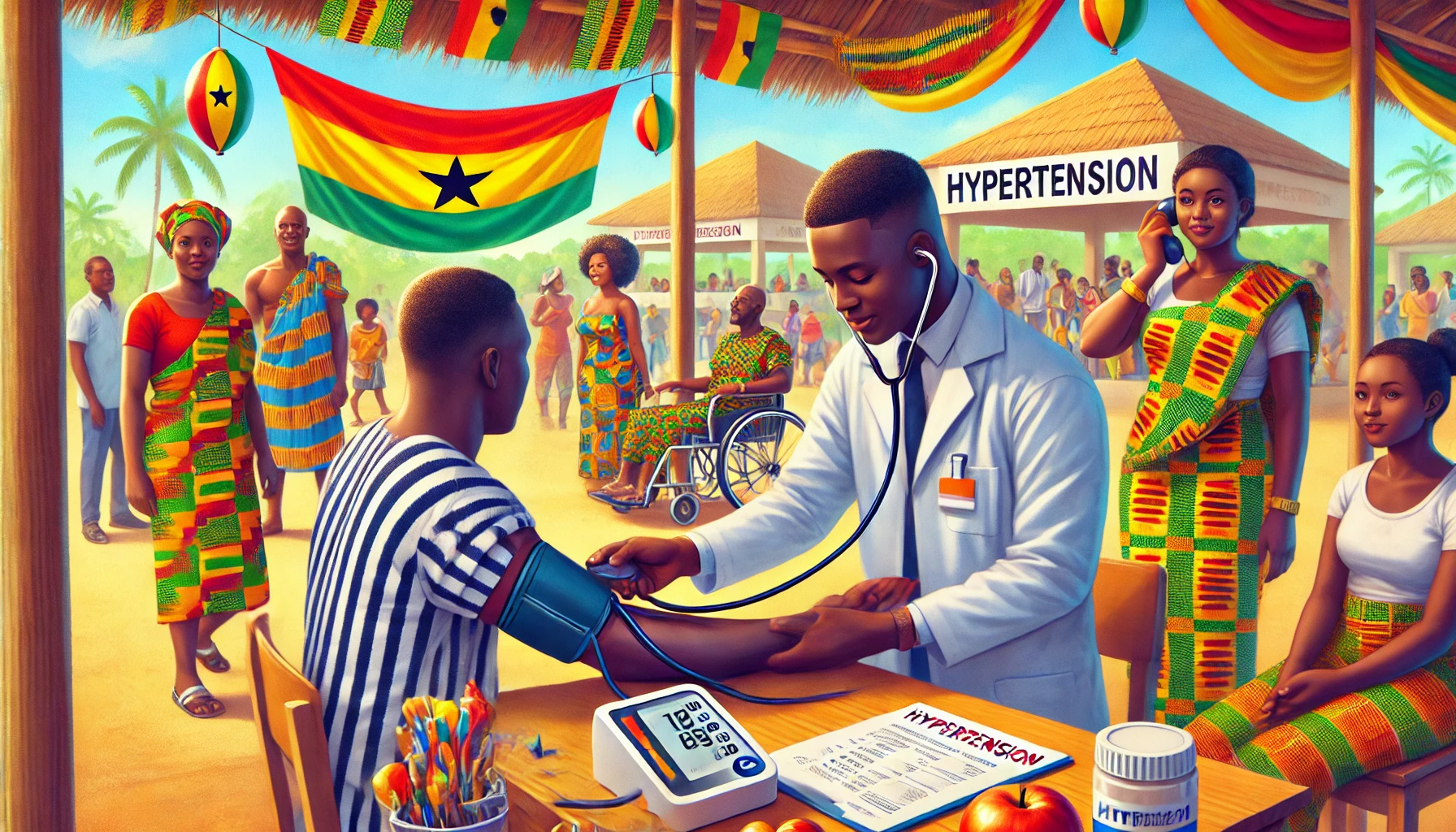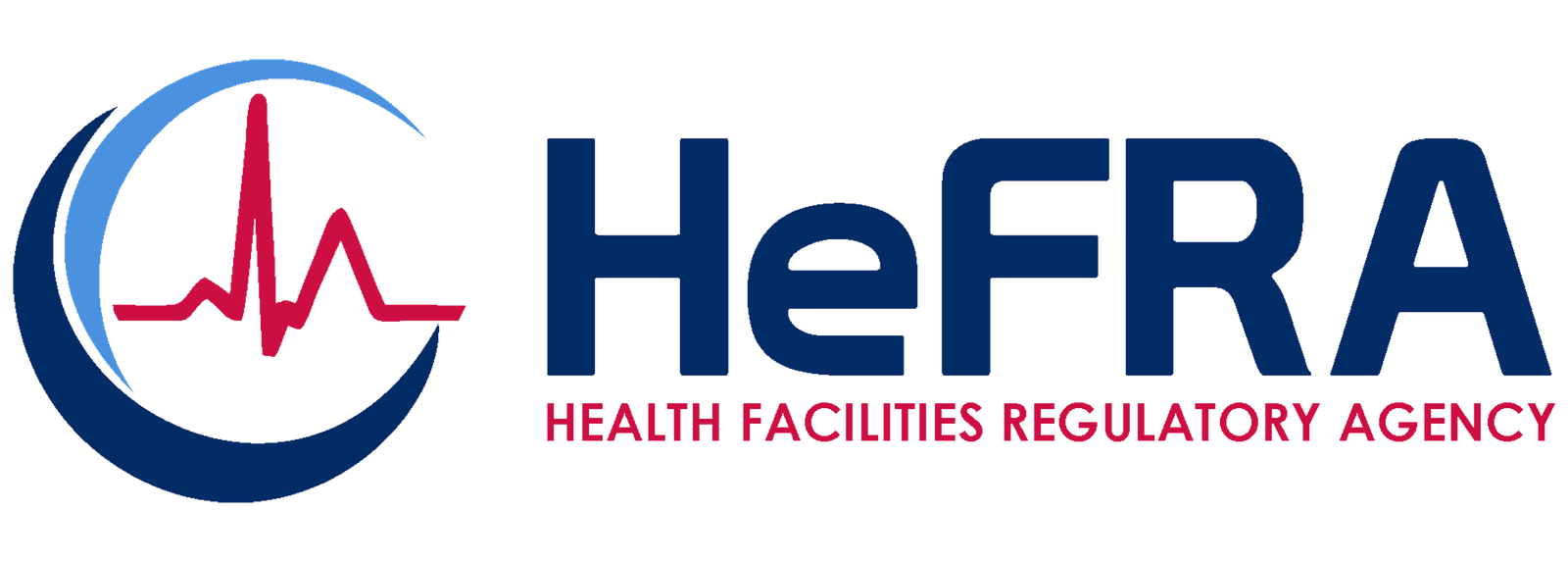
High Blood Pressure: How Much is Too High? - What Every Ghanaian Should Know 🏃♂️💖🩺
High blood pressure, also known as hypertension, is a common but serious condition affecting many people in Ghana and around the world. In Ghana, it is often referred to as “high BP.” When your heart pumps blood with too much force against your blood vessels, your blood pressure rises above normal levels and this can stress different parts of your body. Over time, it can lead to health problems if not managed well. In this article, we will break down what high blood pressure is, the different types, what causes it, and how to prevent and treat it—using simple, practical language for everyday life in Ghana.
1. What Is Hypertension (High Blood Pressure)?
1.1 High blood pressure is hypertension: These two terms mean the same thing.
- A person’s blood pressure is measured using two numbers, for example, “120 over 80” (written as 120/80 mmHg).
- The first number (systolic) measures the pressure in your blood vessels when the heart beats. The second number (diastolic) measures the pressure in your blood vessels when the heart rests between beats.
1.2 High blood pressure (or hypertension) generally means your blood pressure regularly stays above 140/90 mmHgor as directed by your doctor.
Images are only illustrative; may not pass an academic critique
2. Prevalence of Hypertension in Ghana
- Hypertension has become more common in Ghana because of lifestyle changes, including less physical activity and higher intake of salty and fatty foods.
- The prevalence of hypertension in Ghana is rising. Many people may not even know they have it because it often shows no signs in the early stages.
3. Types of Hypertension
3.1 Primary (Essential) Hypertension
- This is the most common type.
- Develops over years with no specific cause (genetics, lifestyle, etc.).
- Sometimes called hypertension essential because it has no identifiable secondary cause.
3.2 Secondary Hypertension
- Caused by another condition, like kidney disease, thyroid problems, or certain medications.
3.3 Gestational Hypertension / Pregnancy-Induced Hypertension
- High blood pressure during pregnancy.
- Also called what is pregnancy induced hypertension or gestational hypertension.
- Can become serious if not closely monitored, both for mother and baby.
3.4 Malignant Hypertension
- A severe, dangerous rise in blood pressure that can happen suddenly.
- Requires immediate medical attention.
3.5 White Coat Hypertension
- Blood pressure rises only in a doctor’s office or hospital because of anxiety (“white coat” refers to doctors’ coats).
3.6 Pulmonary Hypertension
- High blood pressure in the arteries that supply the lungs.
3.7 Portal Hypertension
- High blood pressure in the portal vein (the vein leading to the liver).
3.8 Orthostatic Hypertension
- A sudden change in blood pressure when you stand up from sitting or lying down.
- Sometimes called hypertension orthostatic.
3.9 Idiopathic Intracranial Hypertension
- Unusually high pressure inside the skull (not related to the heart or typical blood pressure measurements).
- This condition can lead to severe headaches and vision problems.
Images are only illustrative; may not pass an academic critique
4. What Causes High Blood Pressure?
- Diet: Eating too much salt, fatty or oily foods.
- Lack of physical activity: Sitting for long periods, avoiding exercise.
- Stress: Emotional stress can temporarily raise blood pressure and contribute to long-term hypertension.
- Genetics: Family history can increase your risk.
- Overweight or Obesity: Extra weight forces your heart to work harder.
- Other health conditions: Diabetes and kidney disease can contribute to hypertension (diabetes and hypertensionoften occur together).
- Certain medications: Some drugs can increase blood pressure.
- Younger Adults: What causes hypertension in young adults can be similar—unhealthy lifestyle, obesity, or kidney issues.
In simple terms, high blood pressure is caused by what?: An unhealthy lifestyle, family history, and some medical conditions.
5. Risk Factors of Hypertension
- Family history of hypertension (genetics).
- Unhealthy diet (too much salt, sugary drinks).
- Lack of exercise.
- Smoking and alcohol abuse.
- Being overweight or obese.
- Chronic stress.
These hypertension risk factors are especially important to address to keep blood pressure under control.
6. Signs and Symptoms of High Blood Pressure
Often called a “silent killer” because many people have no symptoms of high blood pressure until it’s very high.When symptoms do appear, they may include:
- Headaches (can hypertension cause headaches? Yes, especially a hypertension headache at the back of the head or neck).
- Dizziness or blurred vision.
- Chest discomfort.
- Shortness of breath.
- Nosebleeds (less common but possible).
Remember, signs and symptoms of high blood pressure can be subtle or even absent, so regular check-ups are important.
Images are only illustrative; may not pass an academic critique
7. Complications of Hypertension
- Hypertension heart disease: The heart has to work harder, which can lead to heart failure or heart attack.
- Stroke: High pressure can weaken blood vessels in the brain, causing a bleed or blockage.
- Kidney problems: Called hypertension nephropathy, where kidneys are damaged over time.
- Eye damage: Tiny vessels in the eye can be damaged, affecting vision.
- Hypertension emergency vs urgency: Hypertension urgency:-Dangerously high BP without immediate organ damage.Hypertension emergency:- Dangerously high BP with signs of organ damage (for example, heart failure, stroke).
Hypertension crisis is a life-threatening spike in blood pressure that requires immediate medical care.
8. Hypertension and Pregnancy
- Hypertension in pregnancy: Can lead to complications for both mother and baby if not controlled.
- Pregnancy-induced hypertension: Another term for high blood pressure that develops during pregnancy.
- Gestational hypertension: Usually appears around or after 20 weeks of pregnancy. Monitoring and treatment are critical.
9. Hypertension Effects on Daily Life
- Fatigue, difficulty concentrating.
- Risk of heart and kidney disease.
- Emotional stress for individuals and families.
- Financial costs of medical care and medications (hypertension medication can be expensive over time).
10. How to Reduce High Blood Pressure (Hypertension How to Reduce)
10.1 Lifestyle Changes
- Exercise regularly: Walking, dancing, or simple aerobics at home.
- Manage weight: Losing even a little weight can help.
- Stress management: Prayer, mindfulness, or talking with friends and family.
- Quit smoking and limit alcohol.
10.2 Healthy Diet (Food for Hypertension Patient)
10.2.1 Hypertension foods to eat and avoid:
- Eat more fruits (oranges, bananas), vegetables (kontomire, garden eggs), whole grains (brown rice, oatmeal), and lean proteins (beans, fish).
- Limit or avoid too much salt (reduce cubes of seasoning), fried foods, canned foods, sugary drinks, and alcohol.
10.2.2 Food for Hypertension: Local options like boiled plantain with kontomire stew (light on salt and palm oil), banku with okro stew, or tuo zaafi with green leafy soups are good alternatives.
- Drink plenty of water.
10.2.3 Natural Remedies
- Hypertension natural remedies: Garlic, ginger, moringa leaves, hibiscus (sobolo) in moderation (with little or no sugar).
- Hypertension herbs: Certain herbal teas and spices can help, but always consult a healthcare professional first.
10.2.4 Medical Treatments
- Hypertension medication or drugs for hypertension: If lifestyle changes are not enough, your doctor may prescribe medications (e.g., diuretics, ACE inhibitors, calcium-channel blockers).
- Medications for high blood pressure should be taken exactly as prescribed.
- High blood pressure on medication can be well controlled if you do not stop without talking to your doctor.
10.2.5 Nursing Care Plan (NCP)
- In hospitals, nurses follow a hypertension NCP (Nursing Care Plan) to monitor your blood pressure, check for complications, and help manage lifestyle changes.
10.2.6 Checkups and Monitoring
- Regularly visit your clinic or hospital for BP checks.
- Home monitoring is possible with an automatic BP machine.
11. Hypertension Emergency vs. Urgency
- Hypertension emergency: Extremely high blood pressure with symptoms like chest pain, severe headache, or shortness of breath. Requires immediate hospital care.
- Hypertension urgency: BP is very high but without critical organ damage. Should still see a doctor quickly.
12. Can Hypertension Be Cured?
- While there is no permanent cure for most cases of hypertension (especially primary hypertension), it can be successfully controlled or managed with a healthy lifestyle, medication, and regular check-ups.
- Some secondary causes (like certain kidney or hormonal issues) can be treated, potentially improving high blood pressure.
13. Prevention of Hypertension
Hypertension prevention starts with a healthy lifestyle:
- Regular exercise (at least 30 minutes a day, 5 days a week).
- Eating nutritious, balanced meals with less salt and oil.
- Managing stress, possibly through prayer, community activities, or counseling.
- Staying away from smoking and limiting alcohol.
14. Practical Tips for Ghanaians
- Try a reduced-salt diet: Use natural spices like onions, garlic, ginger, and herbs instead of too many seasoning cubes.
- Cook soups and stews with less oil.
- Replace sugary drinks with water, coconut water, or unsweetened sobolo.
- Engage in physical activities common in Ghana like walking to the market or farm, cleaning, dancing, or playing with children.
- Join community exercise groups, if available, or start your own.
15. Key Takeaways
- High blood pressure vs hypertension: They are the same thing.
- Causes of high blood pressure include poor diet, stress, obesity, genetics, and lack of exercise.
- Signs and symptoms of high blood pressure can be minimal, so regular checkups are essential.
- Hypertension complications can affect the heart, brain, kidneys, and eyes.
- Hypertension treatment may involve lifestyle changes and possibly hypertension drugs.
- Natural treatment high blood pressure measures—like certain herbs and dietary improvements—can help alongside proper medical advice.
- How to reduce high blood pressure includes healthy eating, exercise, stress management, and taking prescribed medications.
Images are only illustrative; may not pass an academic critique
Final Word
High blood pressure (high blood pressure disease) is not a death sentence—how to reduce high blood pressure and keep it in check is within your control. Whether you are young or old, pregnant or not, living in Accra or Kumasi, you can make small lifestyle changes that will have a big impact on your health. Regularly checking your blood pressure, following up with your healthcare provider, and taking any prescribed high blood pressure medication will help keep hypertension under control. Spread the word to family and friends, because prevention and early detection are the best defenses against hypertension in Ghana.
If you suspect you have high blood pressure or if you experience any related symptoms, speak to a qualified healthcare professional or visit the nearest clinic for proper evaluation and treatment. Take care of your health today and help reduce the burden of hypertension in our communities.
- 🇬🇭 Brain Attack! How to Spot, Treat & Prevent Stroke in Ghana 🚑🧠⚠️
- Kidney Health 101 for Ghanaians 🌱🍏🥕🥬
- Health Insurance Policies in Ghana for the Ordinary Ghanaian: A Complete Guide 🏥💊🛡️
- Heart Attacks in Ghana Clarified: Causes, Symptoms, Treatments, and Myths 🫀⚠️
- Sweet Lies, Bitter Truths: Ghana’s Diabetes Awakening 🍬📊

We Love to Educate for Free
But please do not self-medicate as wrong doses of even correct medications can cause serious complications like kidney failure and even death. You can talk to a LICENSED health professional (including medical doctors, specialists, physician assistants, clinical psychologists, nutritionists/dieticians, medical herbalists, etc) by downloading the Deluxe Hospital app here:










